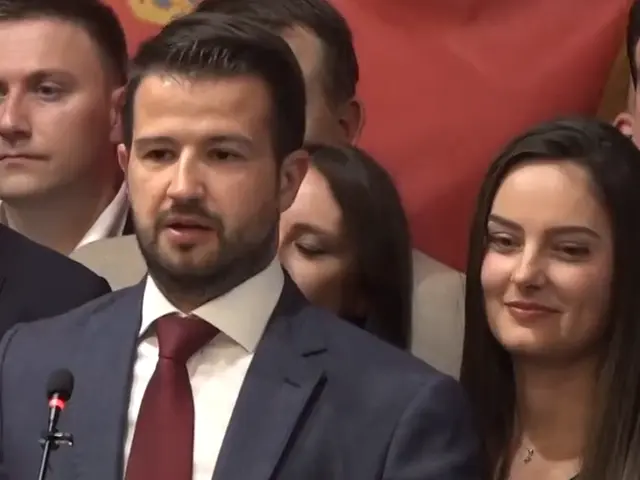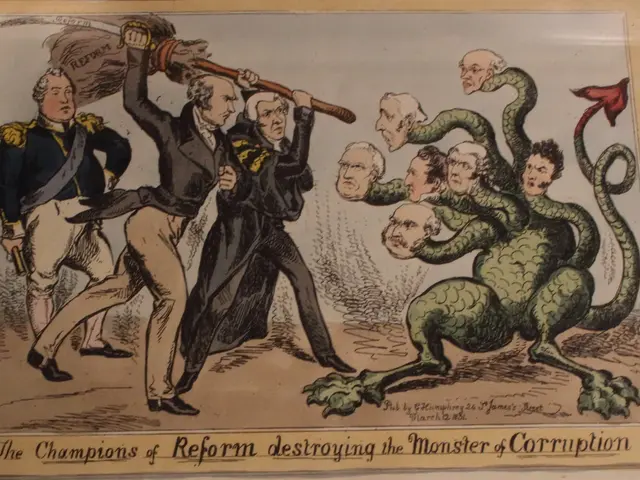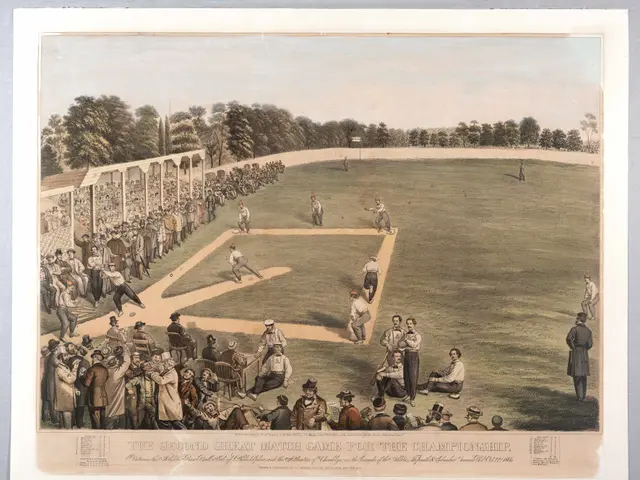Trump, perched in luxury, strives to maintain a connection with the ordinary folk
In the early days of Donald Trump's first term, there was an interesting tactic employed by his staff when it came to the letters that ordinary Americans wrote to the White House. Only the flattering mail made it into Trump's briefing book, with the critical ones intentionally left out, according to a former White House official. This strategy was designed to increase the chances of Trump reading the letters consistently, as it was felt that positive and praiseworthy correspondence would be more appealing.
Politicians, in general, claim they want to keep in touch with everyday folks, but few truly manage to maintain that connection. As a president, Donald Trump faced numerous challenges when it came to having unscripted encounters that could provide him with valuable insights about the public's real concerns. Protective aides and armed guards often served as barriers, while some individuals found themselves too intimidated by the trappings of power to express their true thoughts.
In this second term, Trump appears to be more insulated from voters than ever before. Maintaining an emotional connection to his loyal base is crucial for Trump's political strength, and if he is perceived as oblivious to people's day-to-day struggles, he risks losing a vital grassroots connection.
Yet, White House spokesman Harrison Fields insists that Trump stays connected with the American public through multiple public appearances, reading correspondence, watching news, and inviting everyday Americans to the White House and campaign events. He argues that Trump's unique approach to connecting with his supporters is less formal and more authentic, contrasting with the impersonal, stagy political events that other presidents attend.
Trump's travels throughout his term suggest a president content to stay within his comfort zone—and surrounded by wealth. By the end of May, Trump had spent 14 out of 18 weekends at his own golf clubs or properties, returning time and time again to the luxury of Mar-a-Lago, a private club with a membership fee of $1 million. Campaign rallies, which were once a way for Trump to connect with his core supporters, have become less frequent. This may be because he no longer needs to re-election, but it leaves concerns that he is not listening enough to average Americans.
One individual who hopes to see more engagement from Trump is 28-year-old Christopher Malick, a roofer from Cleveland who has voted for Trump in the past three elections. Malick believes Trump should spend more time talking to ordinary people and listening to their opinions.
While billionaires play significant roles in Trump's government, it's not just the wealthy who have access to him. Last month, Trump hosted a dinner for 220 crypto investors who had purchased his meme coin, TRUMP. Advertised as "the most exclusive invitation in the world," the event took place at Trump's golf club outside Washington, D.C. Some attendees claimed that having access to Trump was problematic, regardless of the timing of the event.
Asked about engaging with the working people who elected him, Trump stated, "I think I get out quite a bit." In reality, though, it appears that he has been less visible and less accessible than he was during his first term.
Critics argue that Trump's language often appears to be out of touch with the average American's concerns, whether it's discussing tariffs as if they only affect owning three dolls, instead of 30, or failing to use the word "stroller" when discussed prices. Time will tell if these disconnects will impact Trump's political standing over the coming months.
- Trump's tendency to engage in activities among the wealthy, such as spending 14 out of 18 weekends at his own golf clubs or properties, may raise concerns that he is not listening enough to average Americans.
- In contrast to Trump's less frequent campaign rallies, a dinner for 220 crypto investors was hosted by him last month at his golf club, an event that sparked discussions about accessibility for ordinary people.
- Asset-rich individuals, like crypto investors, are not the only ones who can potentially gain access to Trump; his government incorporates billionaires in significant roles.
- While Trump maintains that he stays connected with the American public, critics contend that his language and actions sometimes indicate an estrangement from the everyday issues and concerns of ordinary citizens, which could potentially influence his political standing.








